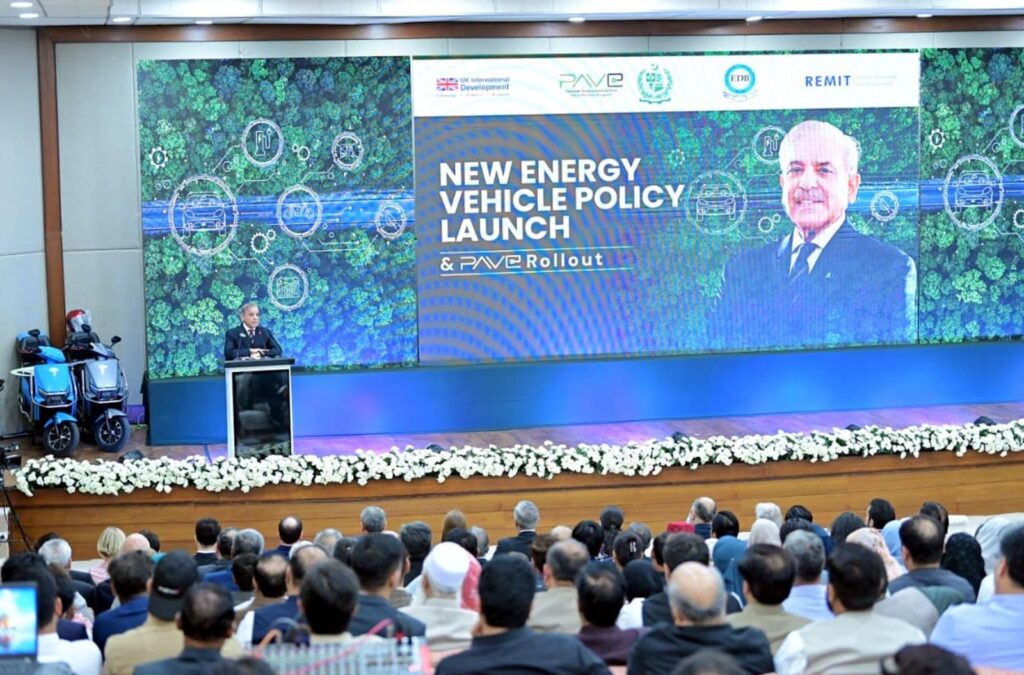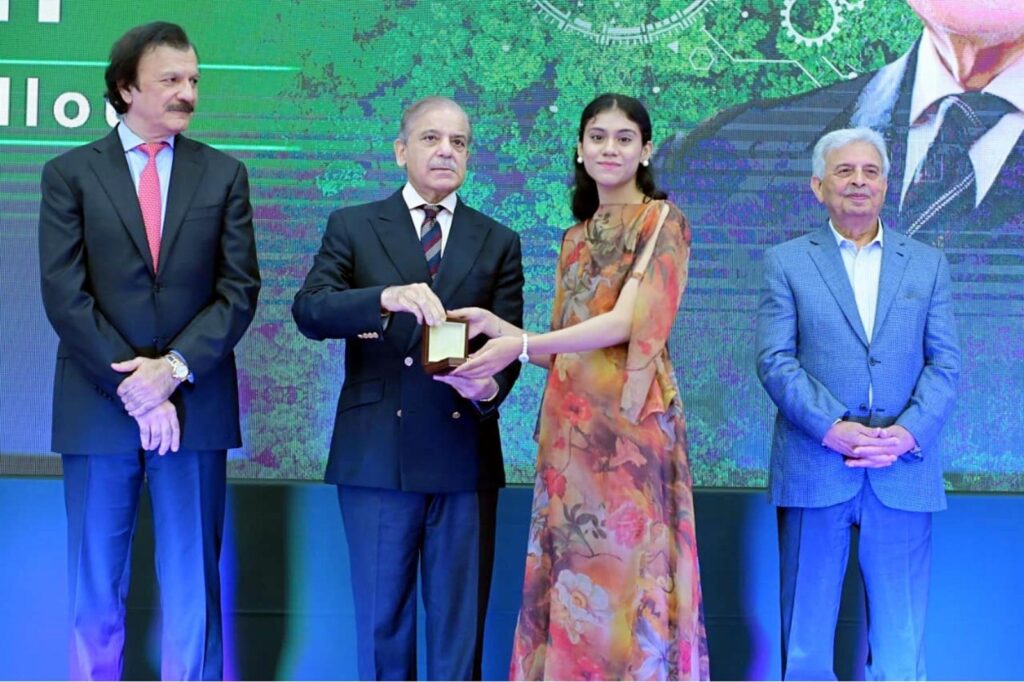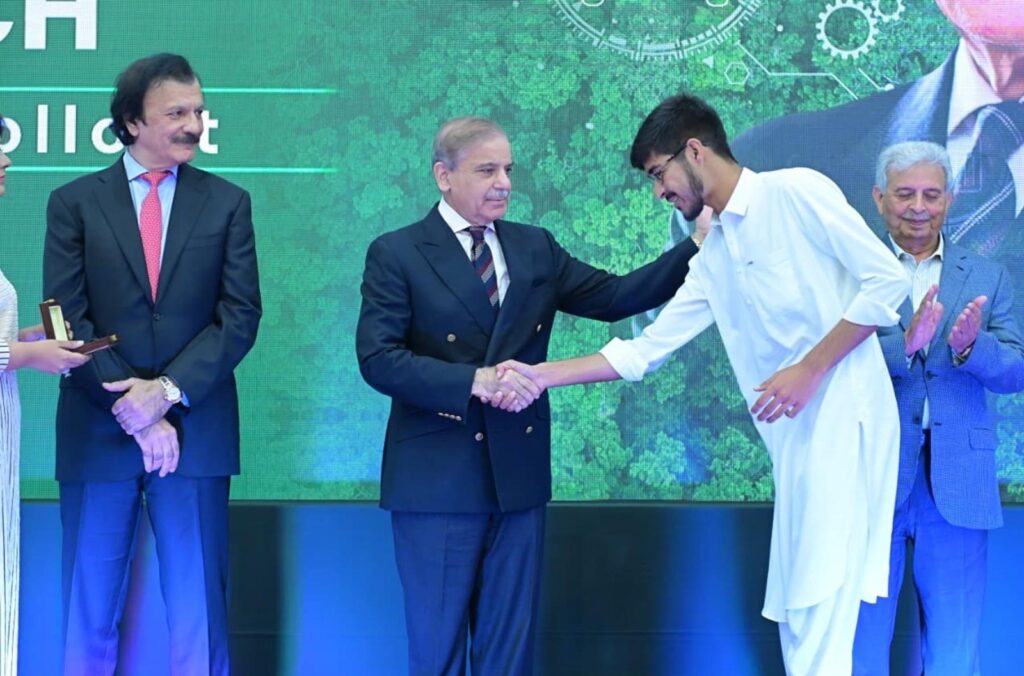APP

Islamabad: Prime Minister Muhammad Shehbaz Sharif formally launched Pakistan’s New Energy Vehicle (NEV) Policy 2025-30, terming it a landmark initiative to drive clean transport, climate resilience, industrial transformation, and youth empowerment.
A Blueprint for Clean Transport and Climate Action
Addressing the launch ceremony, the prime minister said the policy reflects Pakistan’s national commitment to reducing emissions, embracing clean technology, and promoting sustainable transport solutions. He praised Industries Minister Haroon Akhtar Khan and Federal Minister Rana Tanvir Hussain for developing a “comprehensive and forward-looking framework,” and acknowledged the technical support of the UK government.
Highlighting Pakistan’s climate vulnerability, PM Shehbaz recalled the 2022 floods and this year’s loss of over 700 lives due to extreme weather, urging global partners to extend financial and technical support.
Youth Empowerment Through Innovation
In a symbolic gesture, the prime minister distributed e-scooters to top-performing students from across Pakistan, including Balochistan, Punjab, Sindh, KP, AJK, and ICT, with a 10% quota reserved for Balochistan students. He also announced the distribution of 100,000 laptops to high achievers and proposed increasing the program’s budget from Rs9 billion to Rs90 billion.
“This policy is not only about clean energy — it is about empowering our youth, reducing our carbon footprint, and opening doors to innovation and opportunity,” Shehbaz Sharif said.

Policy Highlights and Economic Impact
Industries Minister Haroon Akhtar Khan described the NEV Policy 2025-30 as a blueprint for Pakistan’s clean transport revolution, designed to cut fuel imports, curb urban pollution, and promote local manufacturing.
- Pakistan spends billions on petroleum imports annually.
- Urban air pollution costs Rs105 billion in healthcare and productivity losses.
- Electric bikes cost one-third per kilometer compared to petrol.
- 125 terawatt hours of surplus electricity remain underutilized.
The policy includes incentives such as financing support, toll exemptions, and free registration, making electric mobility accessible for households, students, delivery riders, and businesses.

Governance Continuity and National Interest
Federal Minister Rana Tanvir Hussain, who initiated the policy during his previous tenure, called its implementation a reflection of governance continuity in national interest. He commended the prime minister for linking the launch with youth recognition, saying it inspires a merit-based, clean, and inclusive Pakistan.























